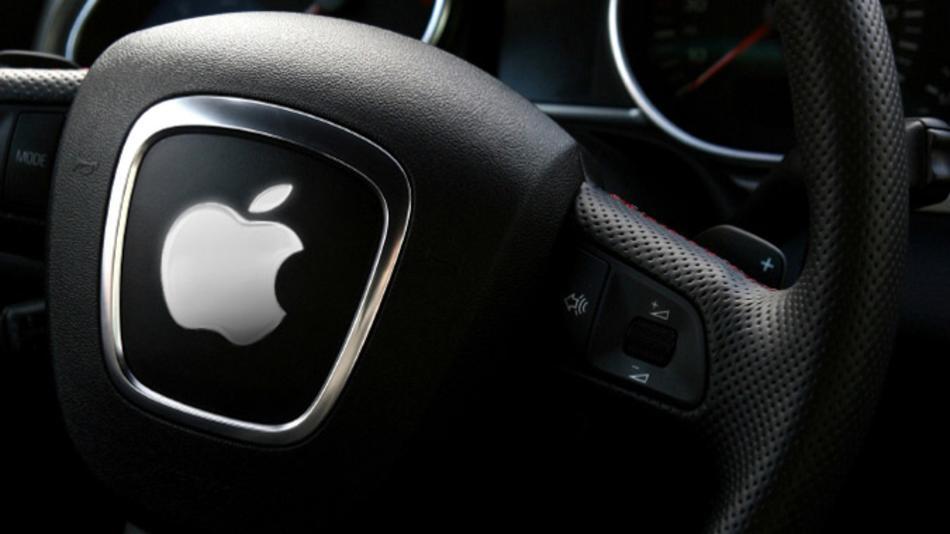What's so strange about Apple, the car manufacturer?
 The automotive world has changed substantially since the century past vision of horseless carriages. Like all greatest inventions, the car is not only a means of transportation, but an object of comfort, beauty, distinction. In many ways the car has evolved in a similar fashion as the personal computer did. Born from a need to accomplish increasingly complex tasks, evolved into Apple Macbooks, Apple iPads and iPhones, to be part of our lives.
The automotive world has changed substantially since the century past vision of horseless carriages. Like all greatest inventions, the car is not only a means of transportation, but an object of comfort, beauty, distinction. In many ways the car has evolved in a similar fashion as the personal computer did. Born from a need to accomplish increasingly complex tasks, evolved into Apple Macbooks, Apple iPads and iPhones, to be part of our lives.
Eyebrows have raised, in the wake of rumors about the possibility that Apple may be looking into manufacturing automobiles, yet quite honestly it’s a wonder why such news may be any surprise at all. Here are a few reasons why Apple the car manufacturer is not only entirely plausible, but possibly in the cards.
Technology and resources.
Apple has plenty of both, as one of the few consumer tech companies that designs its own products and hardware, the motivation to delve into automotive technology feels somehow a natural, quite evolutionary step.
In a recent hiring spree, Apple has acquired a number of former Tesla employees, whose knowledge is crucial to any company involved in automotive construction and design.
Environmental stance
Apple has vowed to completely remove itself from the grid. Every manufacturing plant, office and facility is planned to be eco-friendly and self-sustaining. It’s almost a given that, if Apple were to manufacture engines, they’d be as energy efficient as a Macbook, and most likely, quite as fast.
Design know-how
The “Apple Car”, while has a ring to it within the context of computer products, would probably not be the first choice, as a name for what Apple would most likely create as the most appealing product to car enthusiast. Within the realm of speculation, something that would sound more intriguing, and as exotic as one would expect. The last thing we would expect, would be a vehicle that looks like a cartoon character.
An Apple Car would not drive itself
While technically possible that Apple may someday be interested in manufacturing self-driving vehicles, Apple products are about the experience, which is something Apple has always made a point to never take away from users.
Expanding ecosystem
Home automation is already becoming a priority, and a prime market to get into, however, much like the smartwatch, home automation will take a relatively short time to turn into a very crowded marketplace.
By contrast, manufacturing cars is not as easy a market to get into, without adequate resources and motivation. It’s also a very profitable market. Apple is a company that has always been very smart with its investments, which is why its stock price is currently 23,639% more valuable than it was on its first trading day.
By investing in automotive manufacturing, Apple would be able to exert control over all aspects of the in-car experience. Entertainment is only the tip of the iceberg. By making use of the iCloud infrastructure, GPS tracking would turn any car manufactured by Apple, impossible to steal, through remote ignition locking, and alarm activation, which is not exactly new technology, since we have been able to do that for years with our iPhones and iPads.
If Apple were to delve into drivetrain manufacturing, chances are we could expect electronic, software-based settings in aid to our driving experience, able to detect impending collisions, and even monitor drivers for behavior that would suggest intoxication or exhaustion, and coordinate the braking system, drivetrain and steering, to force the vehicle to a safe stopping location.
If that sounds far-fetched, all we need is to look through many of the patents Apple has acquired over decades, some of which had us wonder about the application in consumer electronics. Within the context of the automotive industry, it all makes a bit more sense.
An apple Car for everyone
Apple has always been about choices. From practicality to performance, we could speculate on the many “classes” of Apple cars, such as the “Mini”, much like the Mac counterpart, would be energy efficient, fast and compact, with a minimal, but powerful range of features.
Next, we could wonder about a street-legal version of the fast, slim and energy efficient Macbook Air, in the form of its sporty, two-seater counterpart.
We couldn’t think of a way to imagine a car with “Pro” in the name, but if we could, it would most certainly reflect the power and functionality of a Macbook Pro. A higher price-tag, perhaps, but with specs to match, and impressive lines, for the ultimate commuter.
What would an iMac look like, if we could drive it? Much like its desktop counterpart, an “iCar” would be the perfect compromise between a Macbook Pro and a Mac Pro. Powerful and fast, yet sporty and fun, like a Camaro or a Mustang.
We could think of the “Mac Pro” of automobiles, as the true executive experience: plush, elegant, roomy, with a staggering package of options, and no compromises on performance.
Of course, while it’s fun to speculate, Apple’s prerogative is innovation, and, as we have been shown time, and time again, innovation has no limit.